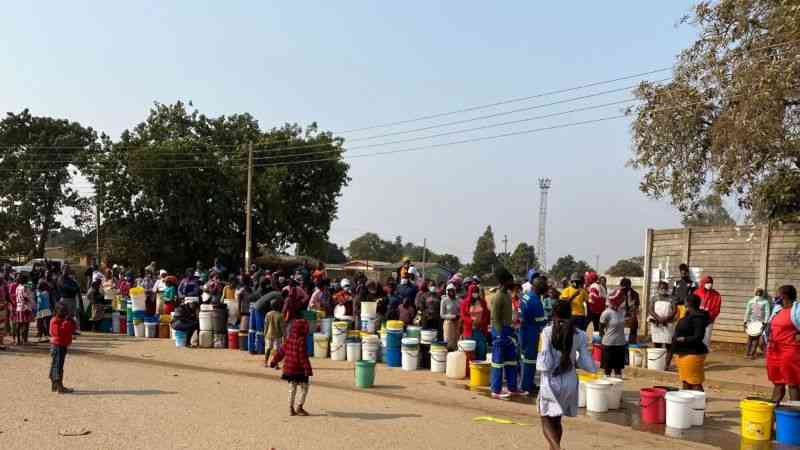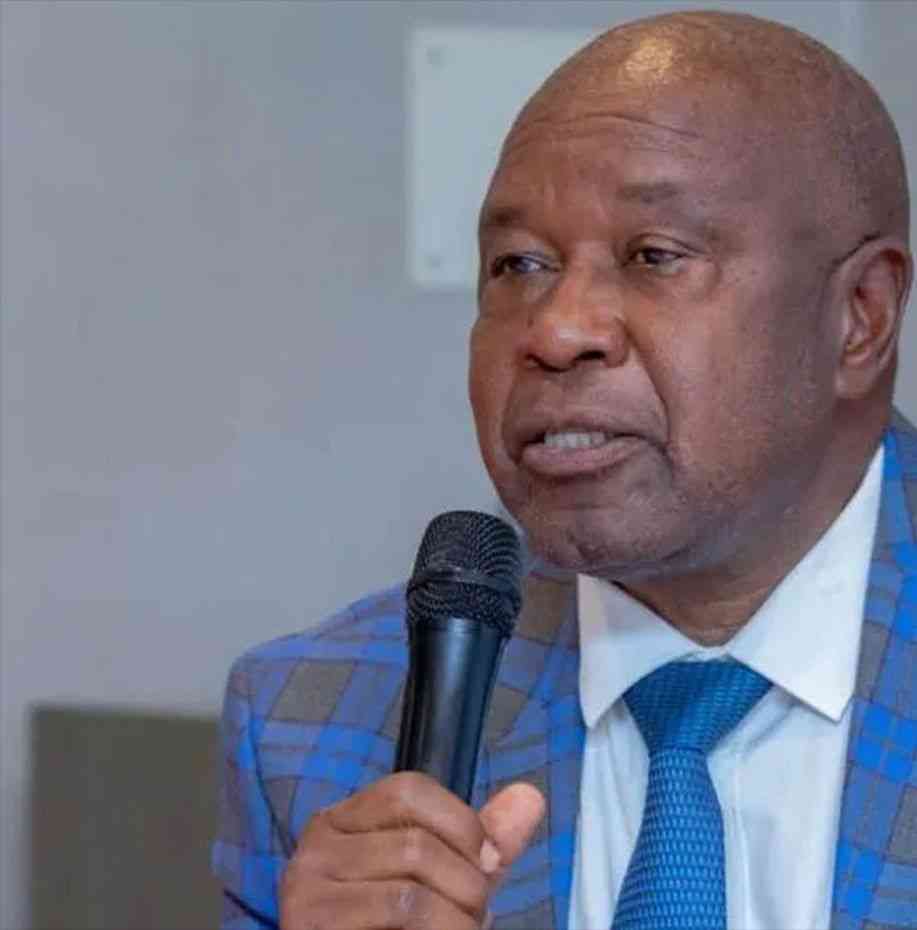
Most residents in Bulawayo said there is nothing to celebrate as the year comes to an end with the same challenges facing the city spilling over to 2024.
The city’s major crisis is the punishing water shortages with residents now going for over a week without the precious liquid as supply dams dry up.
Bulawayo City Council (BCC) was recently forced to introduce a 120-hour water shedding regime, up from 72, as the water crisis deepened.
As of Friday last week, the city’s dams were less than 43% full.
The city also faces deindustrialisation with many companies closing shop, putting paid to any hopes of unemployed graduates in the city ever finding jobs.
In February, giant retail clothing company, Edgars Stores Limited, closed one of its prominent branches in Bulawayo situated near Egodini Bus terminus.
Early this year, government also clashed with residents after announcing plans to decommission the iconic towers of the thermal power plant which has been lying idle for years.
The station was built in 1947 to generate power for the city, and belonged to the municipality until the Zimbabwe Electricity Supply Authority (Zesa) took over operations in 1987 under a revenue sharing agreement with the municipality.
- Bulawayo struggles to clear housing backlog
- Bulawayo struggles to clear housing backlog
- Egodini developer changes tune
- Outcry over city’s new rates, tariffs
Keep Reading
The towers are seen as part of Bulawayo’s identity.
BCC however, failed again this year to find partners to revamp the power plant.
The long awaited Egodini mall project remains a pipe dream years after the tender was awarded to a South African engineering firm, Terracotta, under controversial circumstances.
On the political front, the city became the first in the country to have its elected opposition Citizens Coalition for Change (CCC) legislators recalled following their election in the disputed August elections.
CCC self-imposed interim secretary general, Sengezo Tshabangu, recalled Pashor Raphael Sibanda (Cowdray Park), Erick Gono (Lobengula-Magwegwe), Nicola Jane Watson (Bulawayo South), Desmond Makaza (Mpopoma-Mzilikazi) and Obert Manduna (Nketa).
Tshabangu claimed the CCC legislators had ceased to be party members.
Zanu PF grabbed three of the seats in by-elections held on December 9 with Tshabangu’s camp winning the remaining two.
It was the first time in years that Zanu PF had won a seat in Bulawayo, a city regarded as an opposition stronghold.
Bulawayo Progressive Residents Association secretary for administration, Thembelani Dube, said the water crisis has to be addressed as a matter of urgency.
“The major challenges include non-availability of water for long periods,” Dube said.
“The Gwayi-Shangani dam project must be concluded as soon as possible. The city has endured the water crisis for too long now without any long lasting solution.”
A senior citizen, Ambrose Sibindi, said the harsh economic climate further pushed many Bulawayo citizens into poverty at a time when jobs are scarce.
“2023 was a very bad year as we witnessed a lot of challenges in terms of the general welfare of the citizens,” Sibindi said.
“As we speak now, most people earn in local currency but the exchange rate has gone haywire and many cannot afford to buy basic commodities. Government must simply dollarise as the dedollarisation strategy is failing.”
In Bulawayo and parts of Matabeleland, the South African rand is the currency of choice.
As a result, residents are exposed to various exchange rates, leaving many earning in local currency suffering exchange losses.
President Emmerson Mnangagwa re-introduced the local currency in 2019 after a decade of dollarisation.
Sibanda urged authorities to reopen closed industries to create employment for the city’s jobless youth.
“As things stand, and without political will, our suspicions that our government is clueless in terms of creating employment may be true,” Sibindi said.
Bulawayo United Residents Association chairperson, Winos Dube echoed the same sentiments saying Bulawayo deserves better services and jobs.
“By this time, our economy should have improved, but we are still struggling, especially the elderly people and the youth,” he said.
Dube, however, said the controversial vehicle parking system had brought sanity in the central business district.
The tender was awarded to Tendy Three Investments (TTI) by the previous council under unclear circumstances.
“Before TTI came in, we had seen our streets within the CBD being turned into car wash businesses, garages, some being, you know, vegetable markets,” Dube said.
“But ever since the introduction of the TTI parking project, we are seeing some order and sanity.
“It's really showing some signs of bringing sanity within the city and providing even employment to our young people.”






